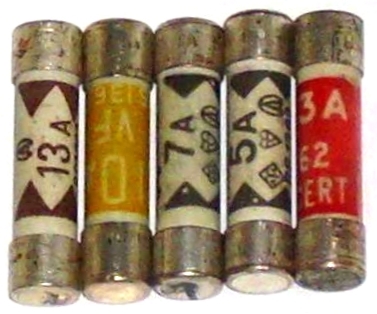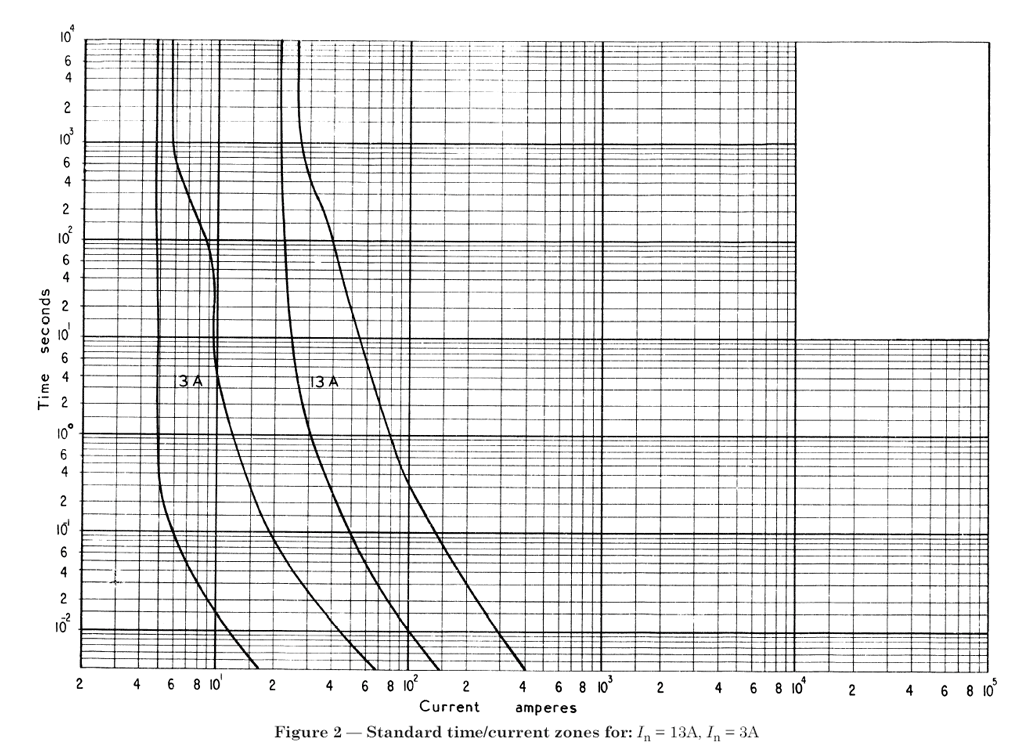Looking at the curve it would seem with a 3A fuse it is very unlikely that the 32A type B MCB would trip before the fuse even with a short circuit, however with the 13A in the first second the current could trip the MCB before the fuse, and we look at divided into circuits, as necessary to avoid hazards and minimize inconvenience in the event of a fault, so there is a good reason when MCB's or RCBO's are fitted to the consumer unit to use a fuse smaller than 13A in a FCU, however if fuses are used in the consumer unit, then that does not apply. With a supply at less than 32A then there is a real danger that the main MCB will trip before the fuse blows, with a B16 looking at 80A to trip, the permitted ELI was 2.42Ω for 13A fuse, so for there to be any discrimination it needs a 20A MCB even then 2.30Ω is a little too close.

We may have 1,2, 3, 5, 7, 10, and 13 however other than 3 and 13 they are not that popular, there was a time when I would select a fuse to protect the appliance, however, I found with experience, when a 1A fuse ruptures feeding a standard lamp, 99 times of of 100 the bulb has also blown, so fitting the 1A fuse did not protect anything, it just resulted in more expense, odd one out is when my wife rummaged through the garage and found a SON bulb E27 and fitted it to a standard lamp from Ikea, the fuse did blow with a large bang, as to the lamp at that time I did not have any SON fittings so not a clue if it worked after or not.
But if on overload the fuse for a drill will burn out before the drill then yes fit a 5A fuse, however every time it has happened to me, the drill needed a re-wind so fuse did not really help. Only time when I can say using fuses saved us money was with some heaters on a shrink wrap machine, the heaters were well know for going short circuit, and the mark/space switching was causing standard contactors to fail on a regular basis, but solid state one would fail with a short circuit when protected with a mechanical overload, but the semi-conductor fuse would actually rupture before the solid state contactor failed, so they actually worked. But they were not standard 13A type.
So other than the SON lamp, and I don't know if bulb was damaged or not, I have not seen a fuse in a plug fail and so protect the equipment it supplied, yes the fuse failed, but so did the equipment it supplied, so may as well fuse for cable not appliance.



